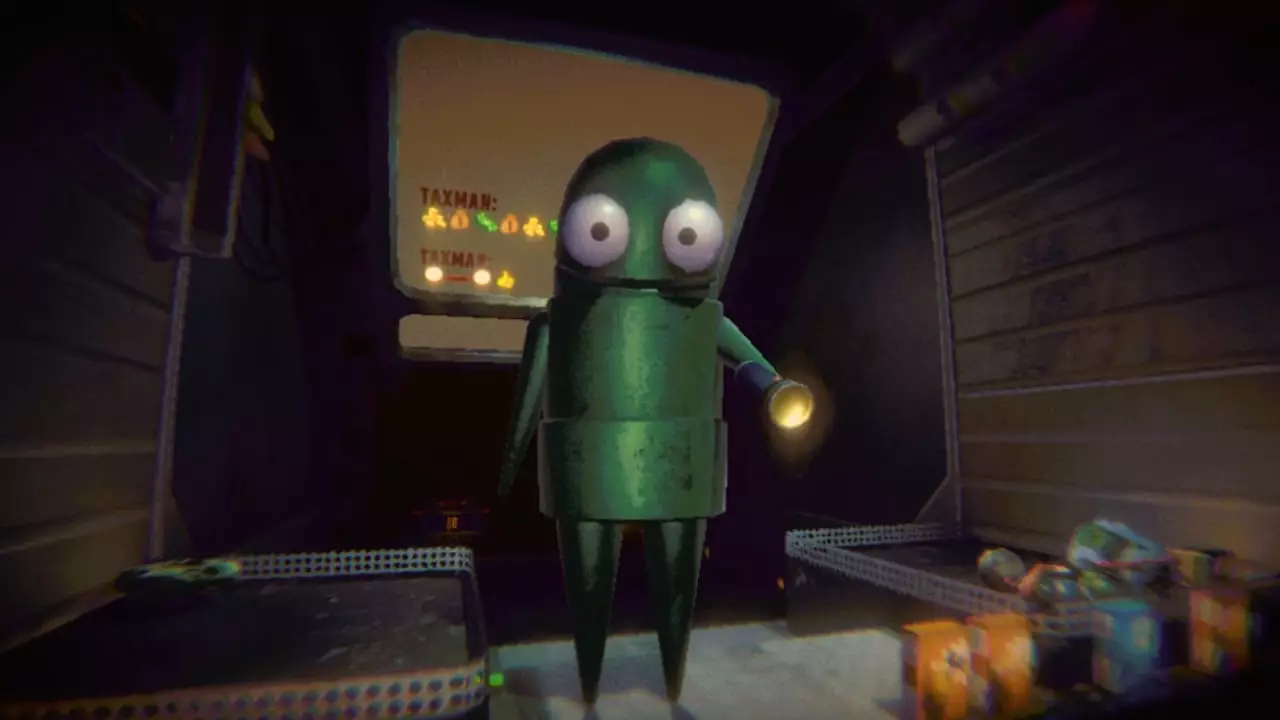In recent years, the horror gaming genre has reached new heights in terms of creativity and community engagement, particularly on the PC platform. One game that has captured the attention of horror enthusiasts is R.E.P.O., developed by the Swedish studio semiwork. This online co-op experience, launched in February 2025, invites players to delve into an atmospheric quest to rediscover an ancient, lost civilization. A focal point of its charm is the delicate balance it demands between calm strategizing and chaotic hilarity — a dance that transforms ordinary gameplay into extraordinary moments shared with friends.
However, amidst this spirited creativity lies a dark underbelly, where opportunistic developers replicate hit games for profit. The situation has grown increasingly concerning, especially highlighted by a recent uproar over a fraudulent game titled “REPO Horror.” Players who innocently stumbled upon it, seeking an authentic experience similar to R.E.P.O., have inadvertently fallen victim to a blatant cash grab. The evidence against this impersonation is overwhelming, revealing how the shady practices of some publishers can mar the excitement of true innovation in gaming.
Unmasking the Impostor
The story emerged when a user on the Nintendo Switch subreddit shared their dismay after purchasing “REPO Horror,” assuming it would offer a thrilling experience like R.E.P.O. At a glance, the two games seem closely related. The logo mimics the original’s design, while the screenshots evoke a similar tone, featuring dimly lit settings and character aesthetics that seem almost identical. However, this illusion quickly dissipates once the user delves into gameplay. Low-quality graphics, subpar mechanics, and a glaring lack of coherence made it abundantly clear that they had encountered a cheap imitation, not the immersive experience they yearned for.
Upon this revelation, the user’s frustration quickly transitioned into action, prompting a report to Nintendo Support. The response noted that the issue would be escalated to higher authorities, underscoring the need for vigilance in the face of deceitful tactics employed by unscrupulous developers. This case mirrors the criticisms directed at similar situations, such as the fallout surrounding the unofficial adaptation of The Backrooms 1998, which also suffered from dubious publication practices.
The Ripple Effects of Deception
The ramifications extend beyond just stolen branding and misleading impressions. Such deceptive practices pose significant dangers, not only to the original game developers like semiwork who pour passion and ingenuity into their creations but also to gamers who risk their money on products that don’t deliver. Talented developers face undue hurdles; when counterfeit games flood platforms, they dilute originality and compromise the integrity of the gaming landscape. It’s a trend that undermines the trust found between consumers and creators, leading many to be increasingly wary of new releases.
Gathering further insight, the developer behind “REPO Horror” is BoggySoft, whose reputation has been marred by similar issues, as evidenced by their involvement with games like “Only Up!” which appears to mimic a title that had already made an impact in 2023. The pattern here shows an ongoing exploitation of consumer trust, as BoggySoft seems unabashedly intent on continuing this pattern of regurgitation rather than fostering genuine creativity.
Community Response and the Need for Vigilance
As the gaming community takes to forums and social media to express their concerns, it is clear that awareness must play a pivotal role in such deliberations. Gamers should be educated about the signs of deceptive titles, equipped with knowledge of which publishers to trust and which to approach with caution. Comments and discussions within communities like Reddit not only help individuals avoid pitfalls, but they also shine a light on unethical practices, generating momentum for change.
The industry must establish firmer standards and protections to safeguard both developers and players alike. As incidents like “REPO Horror” come to light, it serves as a reminder for consumers to conduct thorough research before purchasing. Refusing to give in to disingenuous offerings not only serves individuals but propels the entire gaming community toward a more equitable future where creativity can flourish unimpeded by imitation.

